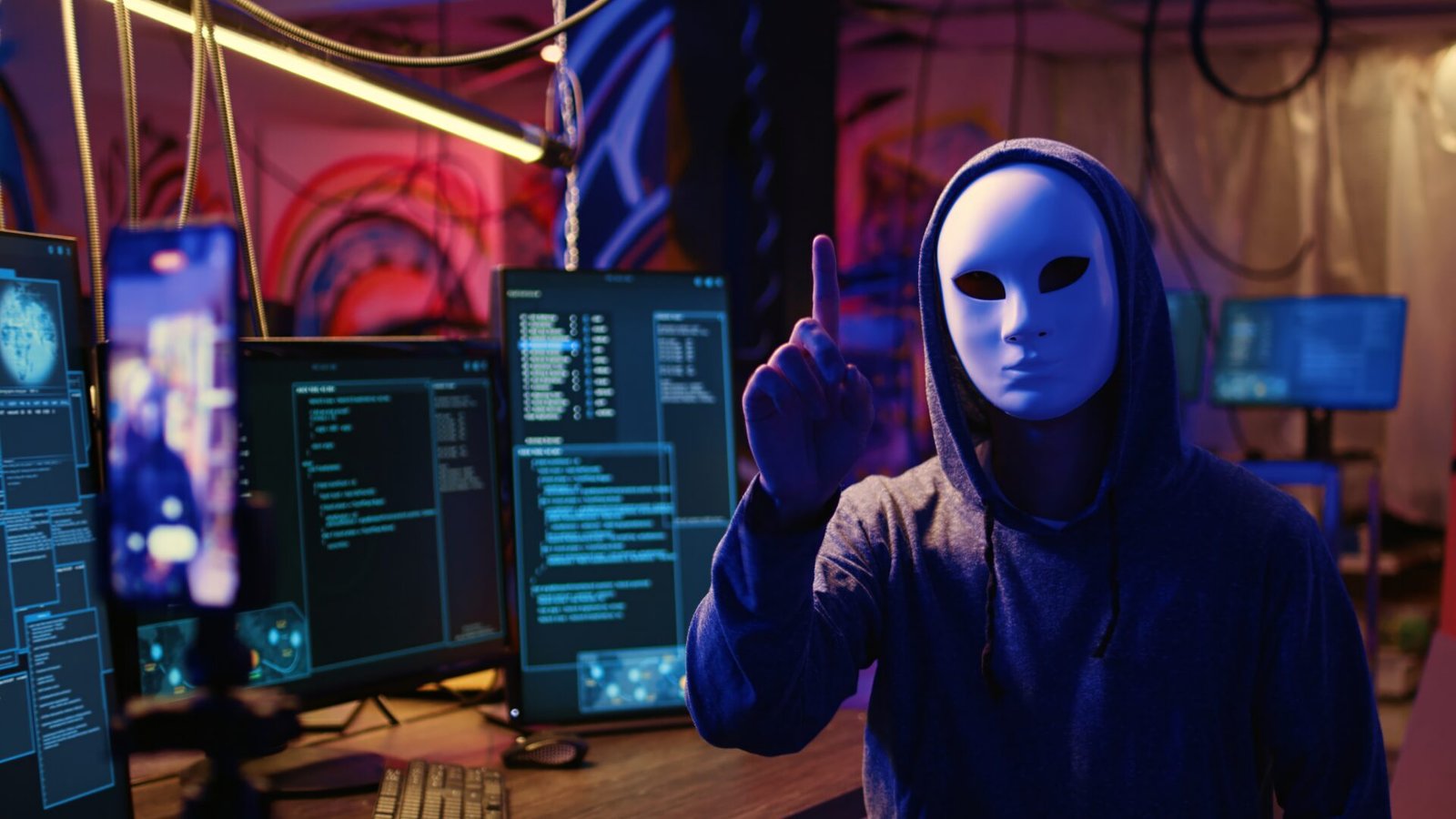IP stands for Internet Protocol. Each time you connect to the internet, a unique number is linked to your device. Your IP address is like an identification for your device, similar to how the postal service uses home addresses for delivery. IP addresses are usually written in the form of numbers separated by dots or colons. For example, 192.168.0.1 is a common type called an IPv4 address. It has four parts (called octets), and each part is a number between 0 and 255.
Websites check your IP only to see where you are approximately located. Just like anyone with access to your address can get an idea of which city or neighborhood you live in. It has become common for advertisers and online services to track activity using IP addresses. Losing privacy while browsing remains a major issue, but there are even more risks associated with exposing your IP address.
Third parties may profile you or even tamper with you if your private information is made public. Hackers may attempt to compromise equipment or pose as your internet provider to deceive you. (An IP address can really be used by fraudsters to initiate customized assaults or even take over your connection.)
What Can Somebody do with your IP address?
Security attacks: While an exposed IP alone is not enough information to “hack” into you, it does become easier for criminals to target you using the leaked information. Phishing attacks can be initiated. Your profile information could be sold at a price on the dark web. Read more on the dark Web. Therefore, revealing such an IP exposes a person to countless potential threats and risks just like printing one’s home address on letters invites attention.
Track your Location: Your IP reveals not only your approximate address but also the service you use to access the internet. Therefore, certain websites can customize their pricing models or even restrict access to specific features depending on your region or location.
Targeted advertisement and profiling: Sites make use of your IP address to construct a sufficient profile for you. A good example would be purchasing ads from businesses situated near the user or preset prices for shopping items. It enables greater convenience, but there is always the downside of being monitored.
Criminal Investigation Departments may use IP addresses to locate criminals or build a case against them.
What is a VPN?
A Virtual Private Network (VPN) is a type of application that hides your IP address and encrypts your data. It functions by securing the connection in a remote server. A VPN can be thought of as a private tunnel that covers everything from the web activities you perform to accessing various platforms. In the absence of VPN, your web requests are routed through your internet provider directly; with VPN however, all traffic first has to pass through the VPN’s server where it gets encrypted before reaching its destination.
Practically speaking, a VPN creates the illusion that you are browsing from a different location. When you activate a VPN, for instance, websites display the VPN’s IP address rather than your own. Think of it as securing your communication in a coded box that can only be opened by the VPN. All of your data, both sent and received, is encrypted. This implies that neither your internet provider nor anybody else monitoring the network can readily see the websites you visit or read your behavior.
Real life uses of a VPN
Public Wi-Fi safety: While the free Wi-Fi provided at hotels, cafes or airport is tempting; it is also a dangerous place full of hackers who could intercept your data and cause damage. It’s important to note that most public WIFI’s serve as goldmine for hackers. Using a VPN shields you from man-in-the-middle attacks and spying when utilizing networks at hotels, cafés, and airports. This essentially means that even if you connect to untrusted networks or WIFI, your data will be protected.
Bypassing restricted services: With VPNs, people can seem to change their geographical location hence allowing them to ‘visit’ countries other than their actual location. For people who wish to access streaming services offered abroad which contain more content than their home version does, all they have to do is connect with a VPN server based in that country. Using VPNs has become popular among travelers as this way makes accessing home banking or streaming services easier.
Privacy and anti-tracking: Your internet provider can view (and occasionally sell) the browsing information you do even when you’re at home. By using a VPN, you can prevent them from monitoring your online activities. Additionally, it removes the connection between your online accounts. Without a VPN, trackers may be able to link your profile together if you log in several times from the same IP. A VPN hides your actual location and prevents the majority of tracking methods.
There are a lot of beginner-friendly VPNs available, according to several sources. For instance, Proton VPN and Express VPN are well-regarded for their user-friendly interfaces and quick speeds. (Express VPN alone offers user-friendly software and servers in more than 100 countries). The prevalence of VPNs is demonstrated by the fact that roughly 68% of American adults already utilize them. Explore more VPNs
Common Myths About VPNs.
There are various misconceptions surrounding the use of VPNs.
Myth: “VPNs are exclusively used by hackers and criminals.” This statement is incorrect. Although some people do use VPNs to engage in illegal activities, a much larger group uses them to protect their privacy and security online. This includes business persons, students, travelers, and anyone concerned about maintaining his or her privacy. People have become more aware of the importance of data protection, leading to a tremendous growth in VPN popularity.
Myth: “I don’t need a VPN because I have nothing to hide.” Everyone’s data holds value regardless of how cordial it may seem. Advertisers and data brokers make money collecting mundane data on your browsing habits. A VPN helps stop this type of data gathering. One security expert stated that “… even innocuous(harmless) data can be used to build a detailed profile of you.” In addition, strong protection is provided through encryption when one’s internet traffic is locked making hacking bank details almost impossible. Not having bad secrets does not equate to having no information that others may consider valuable.
Myth: “Free and paid VPNs are equally effective.” In reality, the majority of free VPNs have significant disadvantages. To generate revenue, they might sell your bandwidth, give you advertisements, or log your activities. Free services frequently feature lower security and slower data rates or limitations. On the other hand, trustworthy paid VPNs—even those that are reasonably priced—invest in robust encryption and no-log guidelines. To put it briefly, “a business typically (or mostly ) uses you to make money when it offers you a free service.” A premium VPN from a reliable supplier is safer for true privacy.
How Staying Safe Online Can Be Achieved Through Simple Steps?
Every person can control their own safety through these basic steps:
Strong Passwords Per Account And To Keep Them Unique: Using letters, symbols and numbers makes it hard to guess a long password or passphrase (more than 15 characters), To remember these passwords, it would be to use a Password manager app which stores all passwords behind one master key securely.
Enable two-factor authentication (2FA): This implies that a second code, such as a text or app code, is still required to log in even if someone manages to figure out your password. It’s a simple method to significantly increase security.
Update Softwares: Make sure to keep your software up to date. Cybercriminals use malicious programs that exploit existing bugs in browsers, apps, and even the operating system itself. By regularly installing pending updates which often contain security patches, you make it much harder for hackers to infiltrate your system.
Avoid phishing scams: Scammers set fake email addresses or websites that seem real in order encourage you into surrendering your password or entice you into downloading malicious software. Always verify the sender’s address and avoid clicking on random URLs or links.
Use Public WIFI wisely: Avoid sensitive tasks (such as banking) if you must use free Wi-Fi. Unless you are on a protected network or a VPN. Don’t connect your devices to unknown networks automatically; instead, treat them as dangerous.
Install a VPN for Privacy: As I previously wrote, a VPN (from a reliable supplier like Express VPN or Proton VPN) can safeguard your information, particularly when using public Wi-Fi. A VPN eliminates numerous trackers and hides your browsing activity from your ISP (Internet service provider), even when you’re at home.
Important Fact: According to recent reports, data breaches are common; in 2024, there were over 3,100 data breaches in the United States that affected 1.35 billion people. With every breach, additional passwords and accounts are made public, increasing the vulnerability of specific people. Read more here.
Disclaimer: The sole purpose of this blog/Article is education.
Although understanding VPNs and IP addresses can improve your online privacy and security, it is illegal to use this information to carry out fraudulent activity, hide illegal activities, or escape law enforcement agencies. Doing so can result in severe legal repercussions, including arrest and imprisonment.
Always utilize cybersecurity tools in a responsible, moral, and legal manner.
Thank you for reading.

